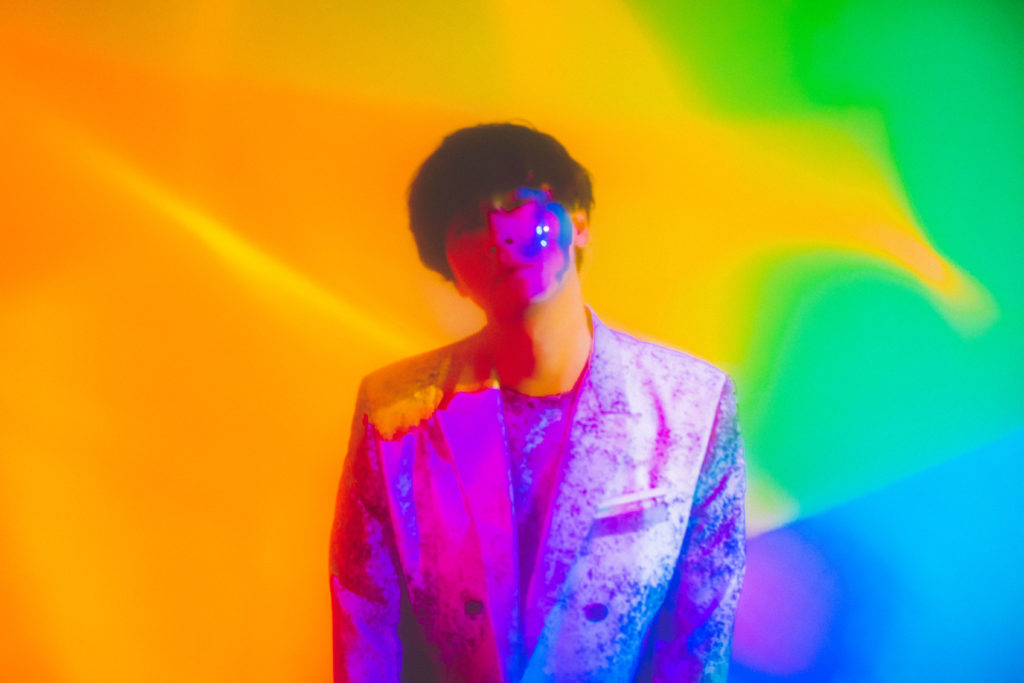
Masaya Mifune of Roth Bart Baron stated, “in 2020, something will change the world completely” upon releasing their previous album, The Name of the Beasts in November 2019. He didn’t say what would happen, but as he predicted, we are amid a universal shift.
As the pandemic worsened, so too did Roth Bart Baron’s circumstances; they had to call off their show at Meguro Persimmon Hall, which was supposed to be the band’s biggest show yet, and they had to cancel the preceding album’s release tour midway. Furthermore, one of the original members, Tetsuya Nakahara, left the band.
This renewed band, where Masaya Mifune takes the lead, pushed their hardships to the side and immersed themselves in creating something different. They released Loud Color(s) & Silence Festival within a year since their last album. The band started making the album in isolation, and it seems like they bore the ripest fruit of their long career. Who would have thought the joy and madness of playing as an ensemble could manifest as an impressive album during these past few terrible months?
We’re unable to engage in festive activities physically, but Roth Bart Baron’s music reverberates through the space between you and me, and thus- a unique celebration is born. The band has honed its highly dynamic alternative folk-rock sound, which is their key feature and has interwoven various sounds created by trustworthy backup band members. Roth Bart Baron has entered their next phase.
Making something that can only be made when people come together

“During times like these, some people might assume, ‘music is a fleeting, fickle thing.’ You could say the same about things such as systems that run the city. We used to believe they were substantive, but this pandemic exposed their brittle nature. In that regard, music is not tangible, but the essence is so dominant. Of course, it’s evident that musicians struggle financially, so they should be compensated fairly.
have had tough times as an ordinary citizen. I’ve also experienced one member leaving the band. It was like my house caught on fire because the entire world is on fire. When something awful happened amidst this huge chaos, I didn’t feel it was real. I didn’t have time to feel sorry for myself because I had to figure out how to proceed with the band after not being able to play live. All over the world, people are suffering more than us, and even when I look at the shops in my local neighborhood, I see shopkeepers selling food in front of their shops because they can’t run it as they would normally. There are so many resilient people fighting through this. I felt more positive, as I realized that I also have to move forward.”
This sense of unwavering positivity is prominent on the album too.
“To be honest, when I was first making the songs, I didn’t have a single ounce of desire to create music made for people to enjoy the rich fullness or intricacies of. Some works of iconic artists have an almost idyllic-looking exterior because something agonizing and tragic happened to the artist, such as them battling issues they had with themselves. Well, I reached a point where I didn’t want to create low-spirited music with subdued musical elements. That type of music does not move people’s hearts. Foremost, I thought about how I could deliver something real while maintaining the enthusiasm we have as a rock band to the world; how could we extract that quality as much as possible?
In terms of the sonic side of things, I wanted to have an even more detailed approach. Takuro Okada, who plays guitar, and I talked about this a lot, but we got very inspired by Blake Mills’ Mutable Set. Listening to it now, it could seem like there are elements that are way too personal, but it has a sense of physical pleasure, and the way he places the sounds is so skilled. It made me realize that there are approaches to sound that I’ve never discovered before.
Regarding the recording, I thought having a remote recording session would be one temporary method, but I felt like we wouldn’t have been able to come out with above-average music. Luckily, a certain number of people could get together after June here, and I wanted to create something that could only be created when people come together. We played together after not playing with other people for a long time, right after they lifted the emergency announcement. It was like reverting to a childlike feeling, where we were all like, ‘this is so fun.’ That left an impression on me. We felt genuine joy, and I think a fresh new sound, with a strength that exceeded my expectations, was born. Even when we listened back to the recording, we knew that we had made something brilliant. It was a ‘festival.’”
Intangibility is the essence of “… Festival”
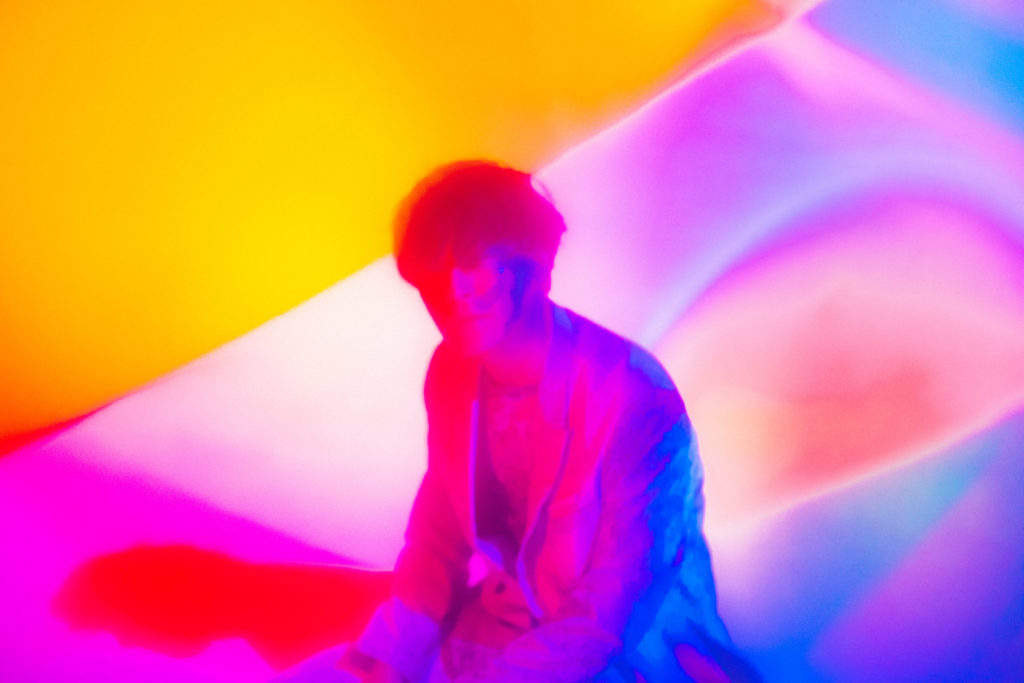
Masaya explains that “festival,” which is one word included in the title, was a vital concept for the album. He used the term in hopes of it going beyond its semantic meaning.
“I believe festivals don’t have a center, but it allows so many people to share their joy. For instance, at festivals, you’ll spot people dancing without looking at the stage or people eating as they sway to the music. It may look like it’s all over the place, but that means there’s an element of fun everywhere you look. Like, the artist isn’t spreading that joy; the happiness each person feels bursts from the inside. Even with sports games, it’s normal for people to pay attention to superhuman athletes on the field, but each person in the audience feels passionate about the game through their emotions. I don’t think there’s a center for the crowd’s zealous enthusiasm towards a particular game.
Going back to coronavirus, don’t you think there’s this oddly refreshing sense of liberation from the halt of capitalism? The incentives that fueled capitalism, such as various economic activities and new products and services, stopped for a while. At that moment, I had an inkling that we could bring more primitive festivals back to life. Right after the previous release and before the pandemic, I had written ‘festival’ on a piece of paper with an ink brush and had it up on my bedroom wall. I felt like this word came to me in an even more vivid way during this situation.
Traditional music events and other events, where people physically get together, are forbidden for now, but I reckoned it was possible to create a festival solely through the music itself. Like I mentioned in the beginning, music isn’t something you can physically touch, as it’s a series of vibrating air particles. I think that intangible quality is the reason a lot of festivals in history have focused on music. Having a big audience is only the second requirement for festivals then. That intangibility is the real essence of festivals. For example, there was a musical ensemble that played music until the Titanic sunk completely. I can’t help but feel like in that scenario, music was a prayer and something with a festive spirit.”
Wanting to create “grand” music on a fundamental level
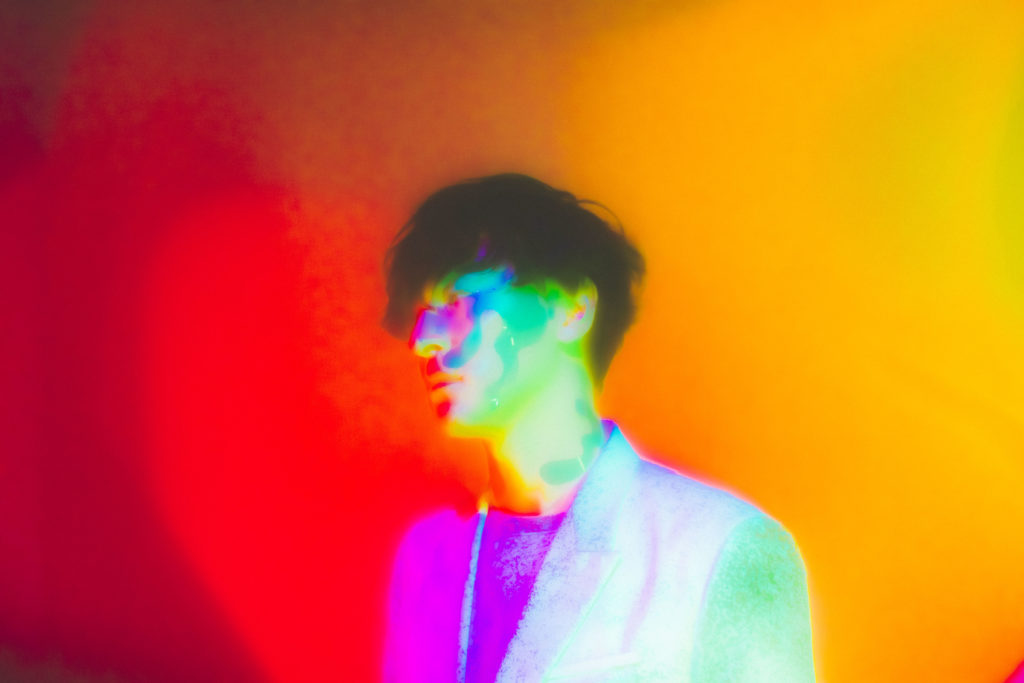
One characteristic of their latest album is their exploration of perspectives that come from non-human creatures, which is a running theme in their previous album, The Name of the Beasts too.
“Some songs were made before coronavirus, but I feel like staying at a small cabin in a remote mountain before the recording process was huge. There were wild boars and deer roaming everywhere, and the greenness made it seem as though nothing had changed in the woods. I realized this turmoil we are going through is only tragic for us human beings, on a deep level. By perceiving everything through a human perspective, we fall into awful situations. I pondered how we could overcome this upon writing the lyrics. Yes, words were created by people, but I wanted to let go of words from the point of view of a suffering person, like… For example, in ‘Gokusai | IGL (S),’ there’s a phrase that goes like, ‘Don’t let that ruin your story.’ Those words came out of me precisely because I was in the woods.
The “loud colors” on the album naturally relate to the notion of diversity, alongside “festival.” It’s an attempt to dissolve the division between people. It’s a sign of the times and is seen as the opposite thing of diversity.
“I reckon we arbitrarily decide the way we understand the zeitgeist, based on division. Greta Thunberg’s remarks about climate change don’t benefit or harm a specific organization. This problem concerns all of humanity, regardless of differing ideologies. Debates for and against her remarks stir up, and who said what matters more than what was said because they shifted the focus on Greta herself. By repeating this cycle, we forget the most imperative thing, which is the fact that the ship we’re all on is sinking. This goes to BLM too. People talk about who is enemies with who, instead of relating to one another based on the conditions and history that led to the burst of anger. Perhaps that’s because of our lack of imagination. Perhaps we’re obeying the rules created by rule makers too much. I think it could be a good thing if there’s a massive shift where people say, make a handball offense in a soccer game as a move that’s directly against the ground rules. I have done a lot of things that weren’t the norm to survive as a band (laughs).
Hmm… what I want to say is, ‘division isn’t trendy.’ Or, ‘we don’t have time to make division trendy.’ I want to look at things from a macroscopic perspective. Maybe this is reflected in my music. Rather than nicely arranging distinct elements, like a beautiful garden, I’ve always wanted to create ‘grand’ music on a fundamental level.”
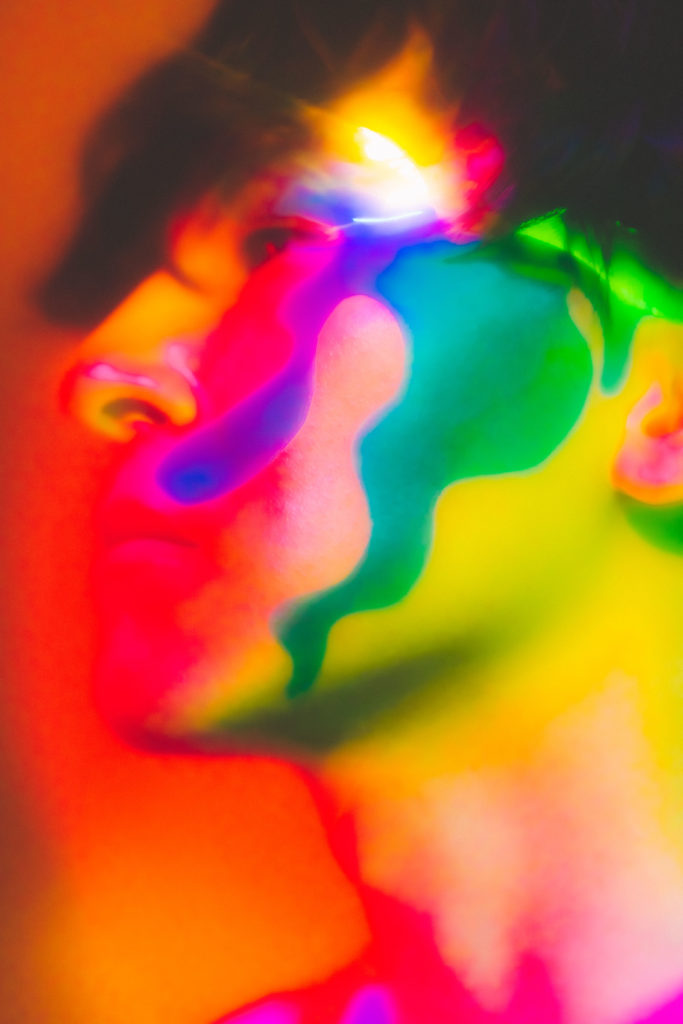
Lastly, he spoke about his enthusiasm for the band’s nationwide tour, which starts this month.
“First off, we want to play good music like always, and deliver that to the audience in the best way. Coronavirus hasn’t been eradicated yet, and things will continue to be perilous, but I want to learn how to deal with that right now. I also think we need to get a grasp on how to foster a festival or festive space according to the situation we’re presented with, or else things will only get harder.
All musicians, including ourselves, are still in the first grade with understanding the guidelines regarding this pandemic. But we can’t be first graders forever. Even if the pandemic ends in the best fashion possible, it’s tough to revert our newfound values to the way they were. Streaming will probably exist alongside live performances too. I hope to pay attention to a variety of things while having fun playing music under these new circumstances.”
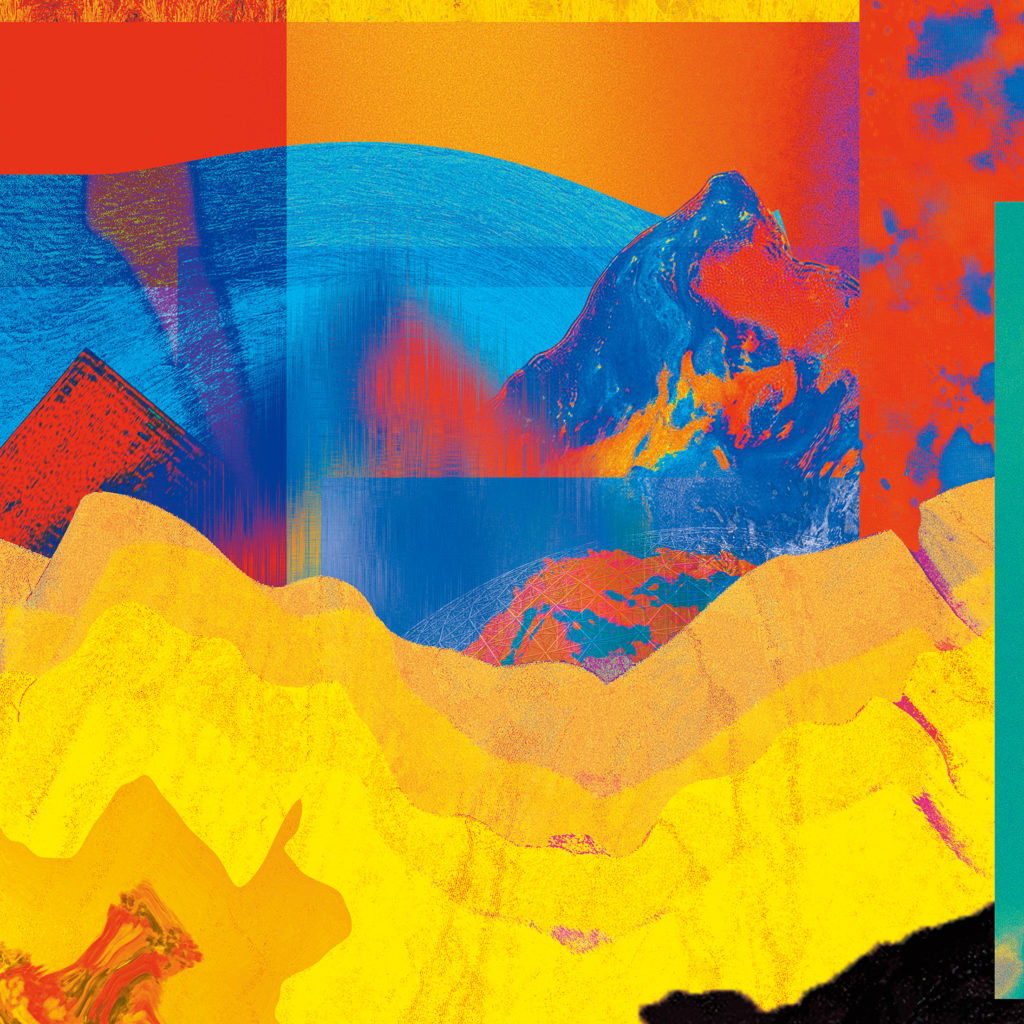
ROTH BART BARON
New Album, Loud Color(s) & Silence Festival
(CD)¥ 3,000
ROTH BART BARON is a Tokyo-based folk-rock band centering on Masaya Mifune (vocals/guitar). They released their first album, ROTH BART BARON’S The Ice Age in 2014. In November 2019, they released their fourth album, The Name of the Beasts, and received third place in Music Magazine’s Rock music category, alongside other awards from music media. They founded a community called Palace in 2018 and started their band management agency. They were awarded the Apple Vinegar Music Award 2020, founded by Asian Kung-fu Generation’s Masafumi Gotoh. They released their new album, Loud Color(s) & Silence Festival on October 28th, 2020, and are now on their nationwide release tour.
https://www.rothbartbaron.com
Photography Toki
Transration Lena-Grace Suda
